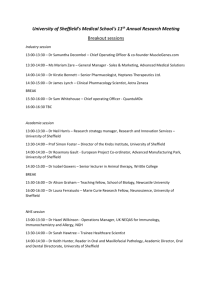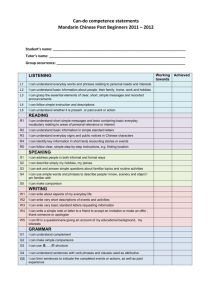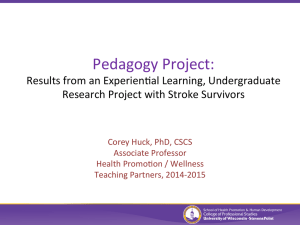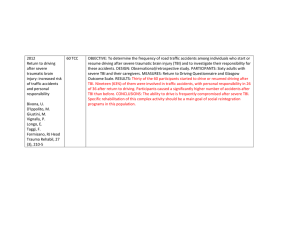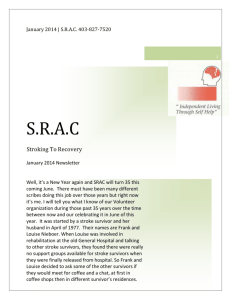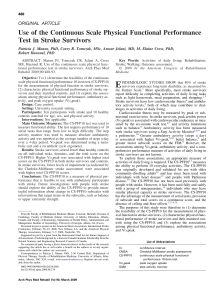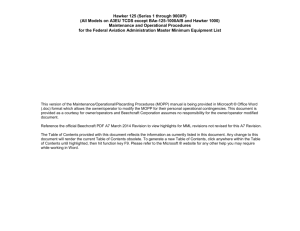Maybe it's because they haven't had to rely on it, like that day I really
advertisement
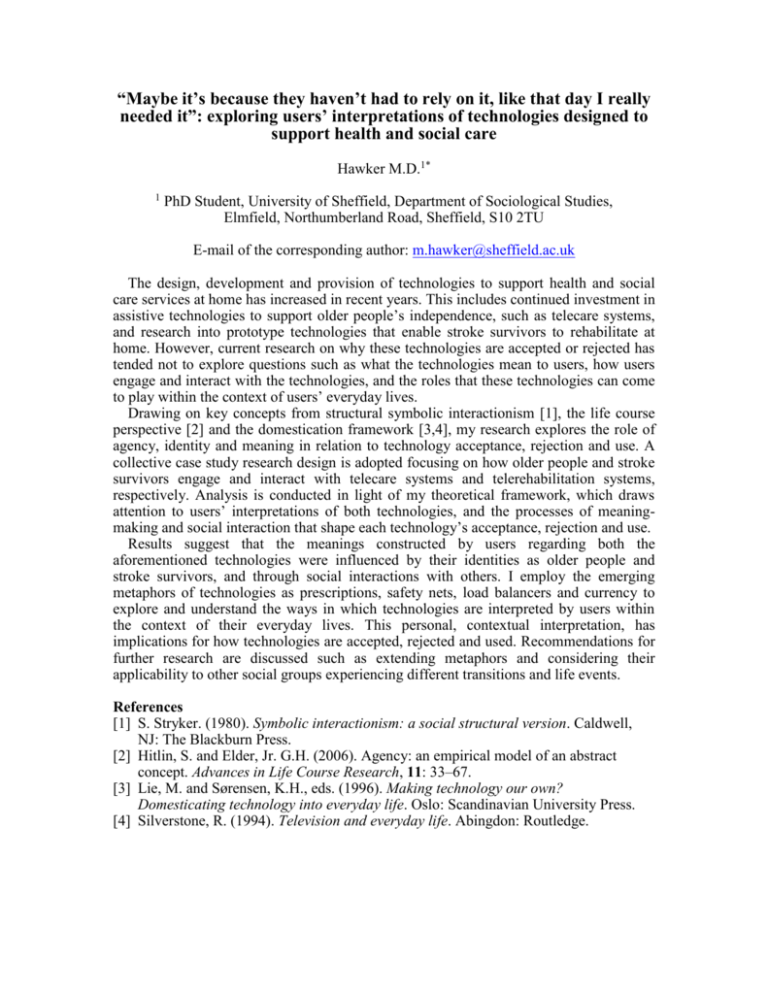
“Maybe it’s because they haven’t had to rely on it, like that day I really needed it”: exploring users’ interpretations of technologies designed to support health and social care Hawker M.D.1* 1 PhD Student, University of Sheffield, Department of Sociological Studies, Elmfield, Northumberland Road, Sheffield, S10 2TU E-mail of the corresponding author: m.hawker@sheffield.ac.uk The design, development and provision of technologies to support health and social care services at home has increased in recent years. This includes continued investment in assistive technologies to support older people’s independence, such as telecare systems, and research into prototype technologies that enable stroke survivors to rehabilitate at home. However, current research on why these technologies are accepted or rejected has tended not to explore questions such as what the technologies mean to users, how users engage and interact with the technologies, and the roles that these technologies can come to play within the context of users’ everyday lives. Drawing on key concepts from structural symbolic interactionism [1], the life course perspective [2] and the domestication framework [3,4], my research explores the role of agency, identity and meaning in relation to technology acceptance, rejection and use. A collective case study research design is adopted focusing on how older people and stroke survivors engage and interact with telecare systems and telerehabilitation systems, respectively. Analysis is conducted in light of my theoretical framework, which draws attention to users’ interpretations of both technologies, and the processes of meaningmaking and social interaction that shape each technology’s acceptance, rejection and use. Results suggest that the meanings constructed by users regarding both the aforementioned technologies were influenced by their identities as older people and stroke survivors, and through social interactions with others. I employ the emerging metaphors of technologies as prescriptions, safety nets, load balancers and currency to explore and understand the ways in which technologies are interpreted by users within the context of their everyday lives. This personal, contextual interpretation, has implications for how technologies are accepted, rejected and used. Recommendations for further research are discussed such as extending metaphors and considering their applicability to other social groups experiencing different transitions and life events. References [1] S. Stryker. (1980). Symbolic interactionism: a social structural version. Caldwell, NJ: The Blackburn Press. [2] Hitlin, S. and Elder, Jr. G.H. (2006). Agency: an empirical model of an abstract concept. Advances in Life Course Research, 11: 33–67. [3] Lie, M. and Sørensen, K.H., eds. (1996). Making technology our own? Domesticating technology into everyday life. Oslo: Scandinavian University Press. [4] Silverstone, R. (1994). Television and everyday life. Abingdon: Routledge.


